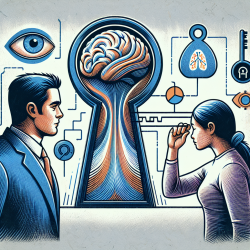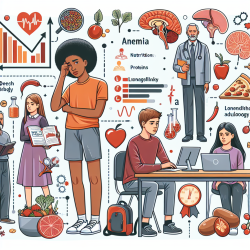Unlocking Potential: Transformative Learning for Health Professionals
In the rapidly evolving landscape of health education, the need for interprofessional collaboration and innovative teaching methodologies is more critical than ever. The research article titled "Why are you here? Needs analysis of an interprofessional health-education graduate degree program" provides valuable insights into how health professionals can enhance their skills and contribute to improved educational outcomes.
The Need for Interprofessional Education
The study highlights a significant gap in faculty development, emphasizing the importance of interprofessional education (IPE) in fostering a collaborative environment. The authors, through grounded-theory methodology, identified that health educators are motivated to pursue advanced degrees to better prepare for their roles. This desire stems from a recognition of the need to move beyond traditional teaching methods and embrace a more evidence-based approach.
Key Findings and Implications
The research identified several key outcomes that can help practitioners improve their skills:
- Hybrid Learning Models: The study found that hybrid delivery models, combining online and on-campus learning, are effective in providing access to education while allowing professionals to maintain their current roles. This approach not only supports flexibility but also enhances learning through practical, project-based assessments.
- Community of Practice: Participants valued the creation of a community of practice, where like-minded professionals could share knowledge and collaborate on innovative educational models. This community fosters a supportive environment that encourages continuous learning and improvement.
- Authentic Learning Experiences: The study emphasized the importance of authentic, project-based learning, which allows participants to apply theoretical knowledge to real-world scenarios. This approach enhances the relevance and impact of the educational experience.
Encouraging Further Research and Implementation
For practitioners looking to improve their skills, this research underscores the value of pursuing advanced training in interprofessional education. By engaging in programs that offer hybrid learning models and foster communities of practice, health professionals can enhance their teaching methodologies and contribute to improved patient outcomes.
Moreover, this study encourages practitioners to consider further research into the specific needs and motivations of health educators. Understanding these factors can lead to more tailored and effective educational programs that address the unique challenges faced by health professionals.
Conclusion
The findings from this study provide a roadmap for health professionals seeking to enhance their educational skills and embrace a more collaborative approach to teaching. By leveraging the insights from this research, practitioners can play a pivotal role in transforming health education and improving outcomes for students and patients alike.
To read the original research paper, please follow this link: Why are you here? Needs analysis of an interprofessional health-education graduate degree program.










